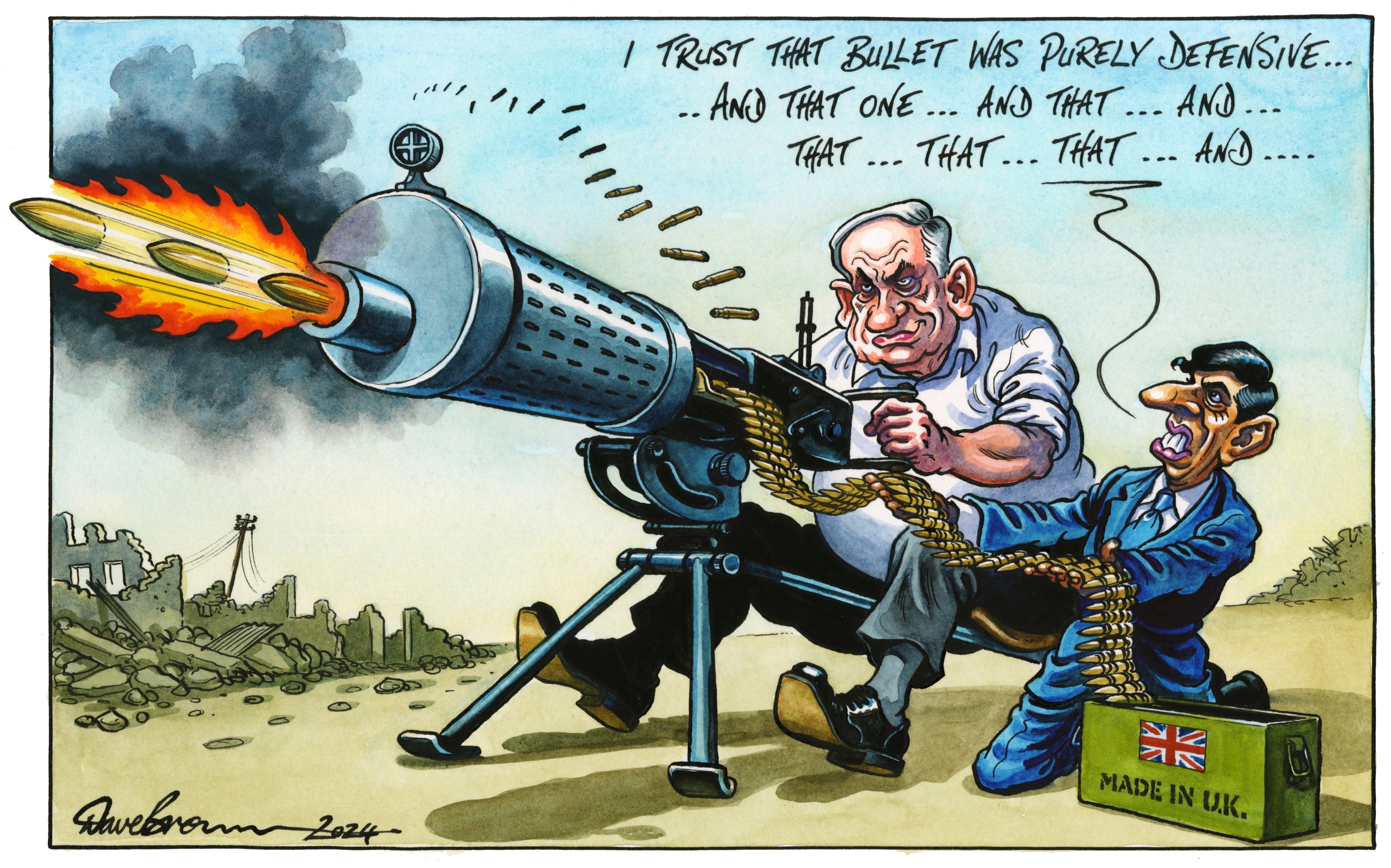If ever there was a time for America to use its might to make Israel do right, it is now
Editorial: To dissuade Benjamin Netanyahu from his current deadly course in Gaza, and possibly beyond, it falls to Joe Biden to make America’s diplomatic, financial and military support firmly conditional. Depriving the US ally of its weapons of war – and adding to its international isolation – is becoming, sadly, inevitable

Stop it – stop it now.” It is not just Jill Biden who is begging her husband to act decisively to end the war in Gaza. The deaths of the seven heroic international aid workers have triggered a global howl of humanitarian anguish.
In all likelihood, Joe Biden, a compassionate and emotional man, doesn’t need Flotus to tell him what needs to be done. He has struggled with the painful dilemmas the present crisis has created for many months. He was as shocked as anyone at the atrocities committed by Hamas on 7 October.
Instinctively, the president stood by Israel. So did the world. But the president has also clearly been increasingly troubled by the conduct of the war. He has grown more outspoken about the casualties and breaches of international law. He has lifted the US veto at the UN and called for a ceasefire.
The question, and the conundrum, now is whether the man at the head of a superpower can manage to prevail upon the Israeli government – which crucially relies on America – to order a ceasefire and cancel the invasion of Rafah. If allowed to go ahead, the onslaught will probably begin soon after the end of Ramadan next week. President Biden must understand that it is impossible to protect civilians in the event of ground operations, and a humanitarian disaster will necessarily follow.
To dissuade the Israelis from following their current plan, the president will have to use more than words: he must make America’s diplomatic, financial and military support for Israel firmly conditional. American aircraft, tanks and missiles used in combat in Gaza must now have a new fitment – some political strings attached. If they do not, then the flow of American armaments and technology to Israel will have to cease. Indeed, depriving Israel of the weapons of war, and adding to its international isolation, is becoming, sadly, inevitable. If need be – and that seems highly likely – America must stop sending arms to Israel.
There are compelling, if rare, historical precedents for such pressure to be brought to bear. In 1992, the administration of George HW Bush felt it necessary to delay a $10bn aid package for Israel until the government of Yitzhak Shamir stopped illegal settlements on the West Bank – a perennial source of tension.
In the case of the UK, Tony Blair and Margaret Thatcher, both staunch defenders of Israel’s right to exist and live in peace, blocked arms exports in 1982 and 2002. Rishi Sunak, who is as frustrated as Mr Biden at Israel’s lack of cooperation, is rightly subject to increasing political impetus to toughen his stance on arms supplies, and a growing consensus among very senior legal figures that he will be breaking international law if he permits British industry to supply Israel’s war machine. It is true that the British arms trade with Israel is small, but it is a matter of doing the right thing and sending an unmistakeable symbolic message.
In all of this, though, it is of course the United States that counts, and historical relations between America and Israel also make it easier for Washington to exert some influence.
Though the British are sometimes surprised to learn it, the country whose association with the United States most closely conforms to the idea of a “special relationship” is Israel. It dates back to the time of JFK, and successive administrations have sought to build close and supportive links with Tel Aviv and Jerusalem. At moments when the very existence of Israel has been imperilled, such as during the 1973 Yom Kippur war, America has sent lavish quantities of materiel unconditionally, backing an effectively unlimited security guarantee, and made tireless diplomatic efforts to bring conflicts to an end and peace to the region.
Presidents Carter and Clinton made the more successful of the many peace initiatives; George W Bush’s interventions were less fruitful. Even Donald Trump, who erred too far in his sympathies towards the Israeli side, can be credited with the Abrahamic Accords, which accelerated the process of normalising Israel’s recognition by and diplomatic links with states such as Saudi Arabia and the United Arab Emirates. America is always the key player.
President Biden has the advantage over most of his predecessors in his long experience and personal acquaintance with the key players. His misfortune is not that of being tasked with trying to stop the war, but of being confronted with the obdurate features of Benjamin Netanyahu. The Israeli premier’s very physiognomy seems to growl “No” – and it does not seem that he has taken very much notice of whatever mix of threats, blandishments and promises his closest ally communicated to him via the hotline.
Mr Biden is a cautious man, and the political consequences of taking a tough line with Mr Netanyahu in an election year do complicate matters. But, in this strained and curiously unbalanced relationship, there must come a time when the president says no to Bibi, and echoes the words of the first lady: “Stop it – stop it now.”



Join our commenting forum
Join thought-provoking conversations, follow other Independent readers and see their replies
Comments